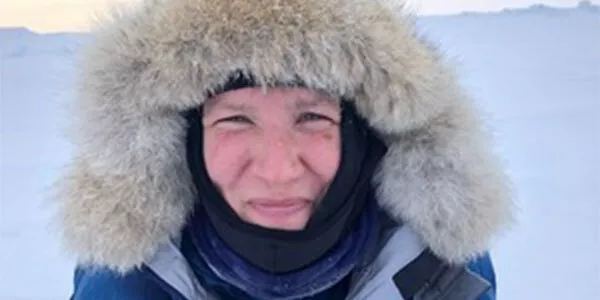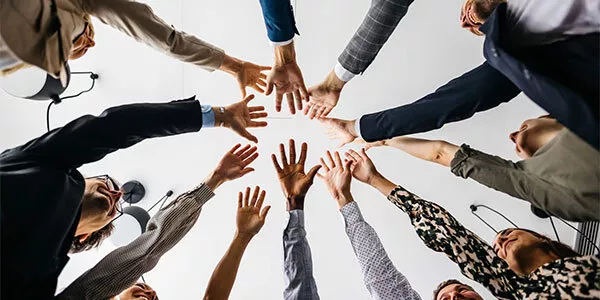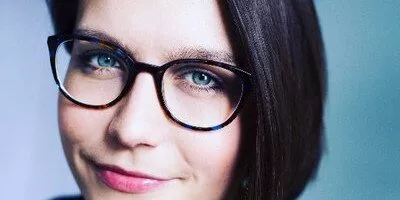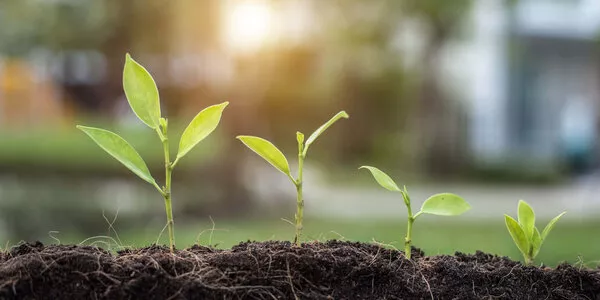
Climate Pioneers: In Conversation with Sian Sutherland
Serial entrepreneur, Pioneer, Change Agent. In Conversation with Sian Sutherland, Co-Founder of A Plastic Planet.
 With a varied background spanning Michelin star restaurants, pregnancy skincare, advertising and film production Sian Sutherland is a master serial entrepreneur. Her diverse experience has informed her unique blend of solutions focussed, pro-business activism. Sian co-founded A Plastic Planet: a social impact non-profit organisation with a single goal – to ignite and inspire the world to turn off the plastic tap. “I used to sell products, now I sell change.”
With a varied background spanning Michelin star restaurants, pregnancy skincare, advertising and film production Sian Sutherland is a master serial entrepreneur. Her diverse experience has informed her unique blend of solutions focussed, pro-business activism. Sian co-founded A Plastic Planet: a social impact non-profit organisation with a single goal – to ignite and inspire the world to turn off the plastic tap. “I used to sell products, now I sell change.”
Sian is in attendance at COP26, keeping a strong focus on the instrinsic connection of the plastic crisis to the climate crisis.
The campaign states: “Plastic. A simple word that should be simple to explain, but it isn’t.” Tell us why.
A Plastic Planet believes in plain speaking. It’s either plastic, or it’s not plastic. Somehow plastic has become a very complicated issue and it suits those that don’t want change to complicate it even further. Our goal is to bring a straight-talking clarity to the world of plastic, using language that everyone relates to.
We are all plastic addicts. Its convenience makes plastic irresistible – in the evening rush rather than wait at the fish counter, it’s much easier to grab the pre-packaged salmon. The prevalence of plastic means that the consumer has become completely disempowered in this issue.
Our campaigns are simply about giving the public choice. Right now, we have no choice but to buy our daily products in plastic. In an age when we are given choice for everything – fat-free, gluten-free, dairy-free, meat-free – we would like the choice to buy plastic-free. We buy what we are sold. We now want the brands and retailers to sell us something better.
If plastic production were a country, it would be the 5th biggest emitter of GHGs in the world. Right now we are forecast to treble production by 2040. Plastic is the last gasp of the fossil fuel industry and we have to stop the extraordinary ramp up in planned production. In US alone, 42 new plastics manufacturers have been planned and built since 2019. We have to turn off that tap.
What change is required?
Now we know the truth about the damage our addiction to plastic has caused, it is indefensible not to change our ways as quickly as possible. Not in 25 years, not even in 5; but now, today.
At times, a green mist descends, obscuring the plastic crisis we currently face. Take recycling for example. Of the 8.3bn tonnes of virgin plastic produced worldwide, only 9% has been recycled. (1) More than half of plastic waste from relatively rich countries is actually exported, often to developing countries who do not have the infrastructure to cope with it. I hate to burst any bubbles, but there are no recycling fairies out there! Recycling will never be a viable solution, particularly as virgin plastic remains so cheap.
Instead, systemic change is required to fundamentally reconsider the way in which products are delivered. True circularity for plastic is not about recycling. It’s a total rethink on how we go from our current model of take, make and waste to a new model of take, make and never throw away. True circular products do not have any waste; everything is captured and reused.
Back in 2017, our first campaign was a plastic-free aisle in a supermarket in Amsterdam, and packaging – responsible for the production of 40% of the world’s plastic – is still a major part of our focus. Think of the advertising millions currently spent on packaging which ultimately amounts to no more than branded rubbish, destined for the incinerator. How wonderful to favour permanence and quality. This is not about hemp and green swirly writing - we are redefining luxury. There is nothing more luxurious than something that doesn’t destroy the planet.
The plastic crisis is not actually a pollution issue, an ocean issue, a waste issue. It is a production issue; a design issue. This is why we work with industry, helping them to find systems and materials to replace this toxic and indestructible material. By contrast, behavioural change should be minimal. We have trained the public to be as addicted to convenience as to plastic. Rather than changing consumer mindsets, we need to rehaul their experience to focus on quality and responsibility.
Will this come at a greater cost? How do we avoid pricing people out?
By pivoting away from a model in which something is used once and then thrown away, manufacturers are able to ensure resources are no longer wasted. In fact, IKEA is currently moving in this direction by implementing a furniture rental model.
Zero-waste means that you are no longer obliged to buy things in fixed quantities – gone are the days of being forced to buy a bag of 3 peppers. Instead you can simply buy what you need, which is more affordable and helps reduce food waste.
To have a lasting impact, transformation must be both inexpensive and democratic. The right to buy plastic-free should never be an issue of affordability. Look at the supermarkets that are actually leading this change - Iceland Foods, Budgens, Co-Op. It isn't the premium retailers.
As a result of Covid-19, we have seen a huge resurgence of single-use plastic. In times of crisis, is long-term sustainability pushed off the agenda? Or do you think that the situation has encouraged people to think differently about their lifestyle and consumer patterns?
At the beginning of the pandemic, valid health concerns meant that for a while we reverted to type. You could see this in supermarket fruit & veg aisles – people would hesitate to pick up individual apples, before selecting groceries swaddled in plastic. Coffee shops stopped accepting reusable mugs.
As immediate priorities shifted, fossil fuel and plastic industry lobbyists had a field day. Bans were lifted on plastic bags and it seemed you could pump any old pollution into rivers, all in the name of getting the country back on its feet post Covid-19…
However, although the pandemic pushed the pendulum in the wrong direction, we can already feel tremendous momentum now to push that pendulum back, at speed. Lockdown restrictions have meant that we value time spent in nature like never before. Having been insistent on “listening to the science” on Covid-19, it’s time to do the same for plastic.
Instead of moaning about the problem, A Plastic Planet decided to demonstrate that we can protect both ourselves and our planet. The coronavirus lasts longer on plastic than on paper or any other raw porous material (72 hours vs 12 hours), so there was a clear opportunity to re-think our approach to PPE. Last May we co-created plastic free PPE ReelShieldFlips, which are lightweight visors derived from clear wood pulp. Though by design a lot of PPE must be single use, these visors can actually be recycled in the paper waste stream or composted at home, instead of polluting our planet for centuries. This is a perfect example of how we work – lead by example showing change is possible.
We cannot be healthy humans on an unhealthy planet. It’s time to get behind the pendulum and push it as far and fast as we possibly can. A Plastic Planet is an army of like-minded passionate people, experts in all relevant fields, standing up for the public who want the choice to buy plastic-free.
We seek to empower women with the knowledge and confidence to protect and grow their wealth. As a female business owner what was your experience of dealing with the financial sector?
As an entrepreneur, I have never felt disadvantaged when I was the only woman in the room. That said, I often check myself to think bigger. At times, it seems that men have an inbuilt tendency to be bolder or take greater risk.
It is not always easy to find a banking partner who truly understands the challenges you face or has done it themselves! Entrepreneurs who have sold their businesses sometimes find it difficult to give up control of their portfolios, having been so accustomed on taking the lead on all business decisions. Establishing the right balance is key.
What’s next for A Plastic Planet and Sian the serial entrepreneur?
My commercial background ensures I remain laser focussed on KPIs and measuring the change we help deliver.
This year we are scaling up our ambitions, leveraging blockchain technology to create an online resource library which will connect producers of plastic-free materials to designers and product specifiers. Through the library we hope to bridge an enormous knowledge gap – empowering designers to consider plastic-free materials in their briefs.
We are working with Kraft Heinz as part of our ‘Sack The Sachet’ campaign; helping develop plastic free solutions for the most iconic of food sachets – Heinz Tomato Ketchup. This is part of our twin track approach – calling for a ban in the UK and EU of non-food plastic sachets, whilst helping industry find solutions.
We are working with the Ocean Plastics Leadership Network on the Global Plastics Treaty Dialogues, creating a safe space for industry and activists to come together to find points of consensus and tension to help accelerate the UN Plastics Treaty process that will be first discussed at UNEA 5.2 in February. Industry cannot fix the plastic crisis through voluntary commitments, we need laws and a strong global government policy.
Where there is change, there is always opportunity. We need to reimagine a bright, fair, fully circular, regenerative future that we can all work towards. I’m a huge fan of Kate Raworth’s Doughnut Economic model and it is exciting to see cities such as Amsterdam, Copenhagen and now countries – Ireland, Costa Rica – adopting this new economic model of thriving in perfect balance and moving away from GDP being the major metric of a successful economy.
As an entrepreneur, I believe in the power of business to transform the world – at scale and at speed. The pandemic has hewn a deep line through the world of business. Those industries who neglect to change course right now will stay behind that line, and will be tomorrow’s dinosaurs. The winners will be those that adapt fast, stepping across that line, taking this seismic moment of huge disruption to reinvent how they work. I am hugely optimistic that a new future is achievable. We just need to want it.
(1) Source: 2017 Science Advances paper - Production, Use And Fate Of All Plastics Ever Made. (2017)
CA71Mar2021



